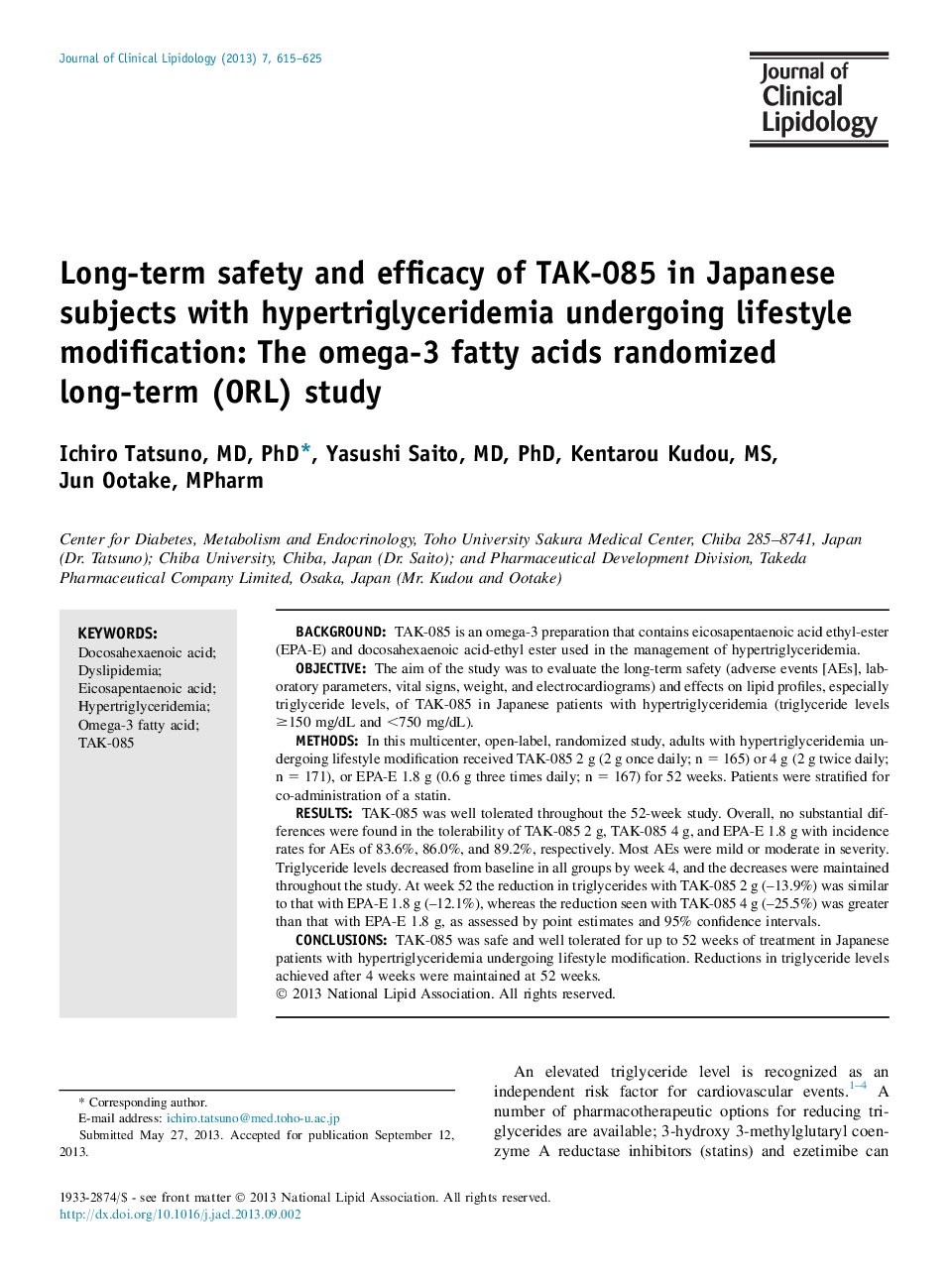| Article ID | Journal | Published Year | Pages | File Type |
|---|---|---|---|---|
| 2966184 | Journal of Clinical Lipidology | 2013 | 11 Pages |
►TAK-085 is an oral treatment that contains omega-3 fatty acid ethyl esters.►We evaluated its safety/efficacy in Japanese patients with hypertriglyceridemia.►TAK-085 4 g/day reduced triglycerides significantly more than EPA-E 1.8 g/day.►TAK-085 2 g/day reduced triglycerides to a similar extent as EPA-E 1.8 g/day.►TAK-085 was safe and well tolerated during treatment for up to 52 weeks.
BackgroundTAK-085 is an omega-3 preparation that contains eicosapentaenoic acid ethyl-ester (EPA-E) and docosahexaenoic acid-ethyl ester used in the management of hypertriglyceridemia.ObjectiveThe aim of the study was to evaluate the long-term safety (adverse events [AEs], laboratory parameters, vital signs, weight, and electrocardiograms) and effects on lipid profiles, especially triglyceride levels, of TAK-085 in Japanese patients with hypertriglyceridemia (triglyceride levels ≥150 mg/dL and <750 mg/dL).MethodsIn this multicenter, open-label, randomized study, adults with hypertriglyceridemia undergoing lifestyle modification received TAK-085 2 g (2 g once daily; n = 165) or 4 g (2 g twice daily; n = 171), or EPA-E 1.8 g (0.6 g three times daily; n = 167) for 52 weeks. Patients were stratified for co-administration of a statin.ResultsTAK-085 was well tolerated throughout the 52-week study. Overall, no substantial differences were found in the tolerability of TAK-085 2 g, TAK-085 4 g, and EPA-E 1.8 g with incidence rates for AEs of 83.6%, 86.0%, and 89.2%, respectively. Most AEs were mild or moderate in severity. Triglyceride levels decreased from baseline in all groups by week 4, and the decreases were maintained throughout the study. At week 52 the reduction in triglycerides with TAK-085 2 g (–13.9%) was similar to that with EPA-E 1.8 g (–12.1%), whereas the reduction seen with TAK-085 4 g (–25.5%) was greater than that with EPA-E 1.8 g, as assessed by point estimates and 95% confidence intervals.ConclusionsTAK-085 was safe and well tolerated for up to 52 weeks of treatment in Japanese patients with hypertriglyceridemia undergoing lifestyle modification. Reductions in triglyceride levels achieved after 4 weeks were maintained at 52 weeks.
